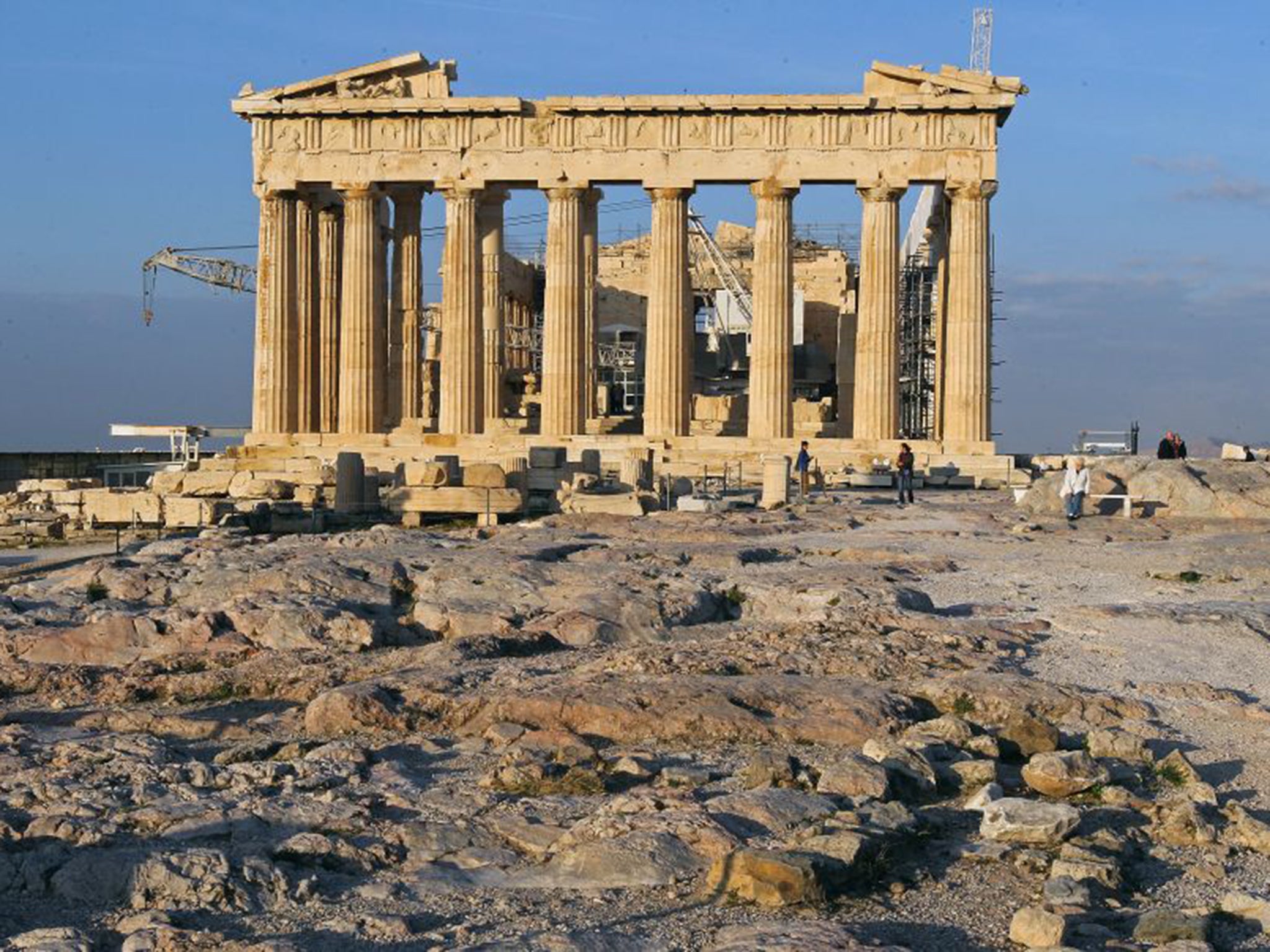Seven reasons to return the Elgin Marbles to Greece
Two hundred years ago, the UK bought sculptures from the Parthenon from the Earl of Elgin — it's time to send them back and here's why

Your support helps us to tell the story
From reproductive rights to climate change to Big Tech, The Independent is on the ground when the story is developing. Whether it's investigating the financials of Elon Musk's pro-Trump PAC or producing our latest documentary, 'The A Word', which shines a light on the American women fighting for reproductive rights, we know how important it is to parse out the facts from the messaging.
At such a critical moment in US history, we need reporters on the ground. Your donation allows us to keep sending journalists to speak to both sides of the story.
The Independent is trusted by Americans across the entire political spectrum. And unlike many other quality news outlets, we choose not to lock Americans out of our reporting and analysis with paywalls. We believe quality journalism should be available to everyone, paid for by those who can afford it.
Your support makes all the difference.July 11 this year is the 200th anniversary of the Act of Parliament that saw the UK buy 2,500-year-old sculptures taken from the Parthenon from the then Earl of Elgin. Widely known in Britain as the 'Elgin Marbles', campaigners believe it is time to send them back to Athens to allow all the surviving sculptures to be reunited.
Here are seven reasons why:
Art
The brilliance of the Parthenon building and the sculptures that once adorned it cannot be understated. Its fluted columns can be seen on great buildings around the world from London and Rome to Washington DC. The artists who created the sculptures were among the finest the world has ever seen, making stone seem almost like flesh. Their skills were not seen again until the likes of Michelangelo in the Renaissance.
Democracy
The Athenians built the Parthenon after playing a leading role in the defeat of the Persians in the 50-year Greco-Persian war. The free men of the first significant democracy known to history and their allies managed to prevail against the Persian Empire's army of conscripts and professional soldiers. In addition to Athens’ success on the battlefield, there was also a flowering of philosophy, theatre and art at this time. To many, the Parthenon is a monument to the democratic values held by countries around the world today.
Greece
Following the global recession in 2008, Greece has found itself burdened by massive debts and forced to live under policies of austerity that the Financial Times has described as turning the country into a “quasi-slave" economy. Youth unemployed is about 50 per cent and suicide rates have soared. The country has also had to deal with hundreds of thousands of refugees fleeing the brutal war in Syria and desperate poverty and religious extremism in other countries. Returning the sculptures would boost public morale and also tourism, a mainstay of the Greek economy.
The world
It is often said that the Parthenon sculptures belong to the world. All over the globe, there are committees for the reunification of the marbles for one very simple reason. It is better to be able to see them all in one place.
No reasons not to
None of the reasons for keeping half the Parthenon sculptures in London stand any serious scrutiny. Returning them would not set a precedent that would empty every museum in the world. Most museums have returned artefacts in the past without causing a significant problems. And this would not be the return of a single entity to its place of origin, but instead would allow the reunification of a work of art in the most appropriate place.
Altruism
In a world where the number of genuinely altruistic acts between nations is vanishingly small, this would be an astonishing example. It would be an inspiration to all and help counter those who believe humans are innately selfish.
Brexit (and self-interest)
There is an element of British self-interest in this, but not to the degree that it outweighs the overall altruistic nature of returning the marbles. China sends pandas around the world partly to make people think it’s ‘the nice country where the cool bears come from’, rather than the ‘Communist dictatorship that sends dissenters to gulags’. Giving a gift of this magnitude would remind EU member states that despite our imminent departure, Britain is still a friend and ally — and one worth cutting a reasonable trade deal with.
Join our commenting forum
Join thought-provoking conversations, follow other Independent readers and see their replies
Comments